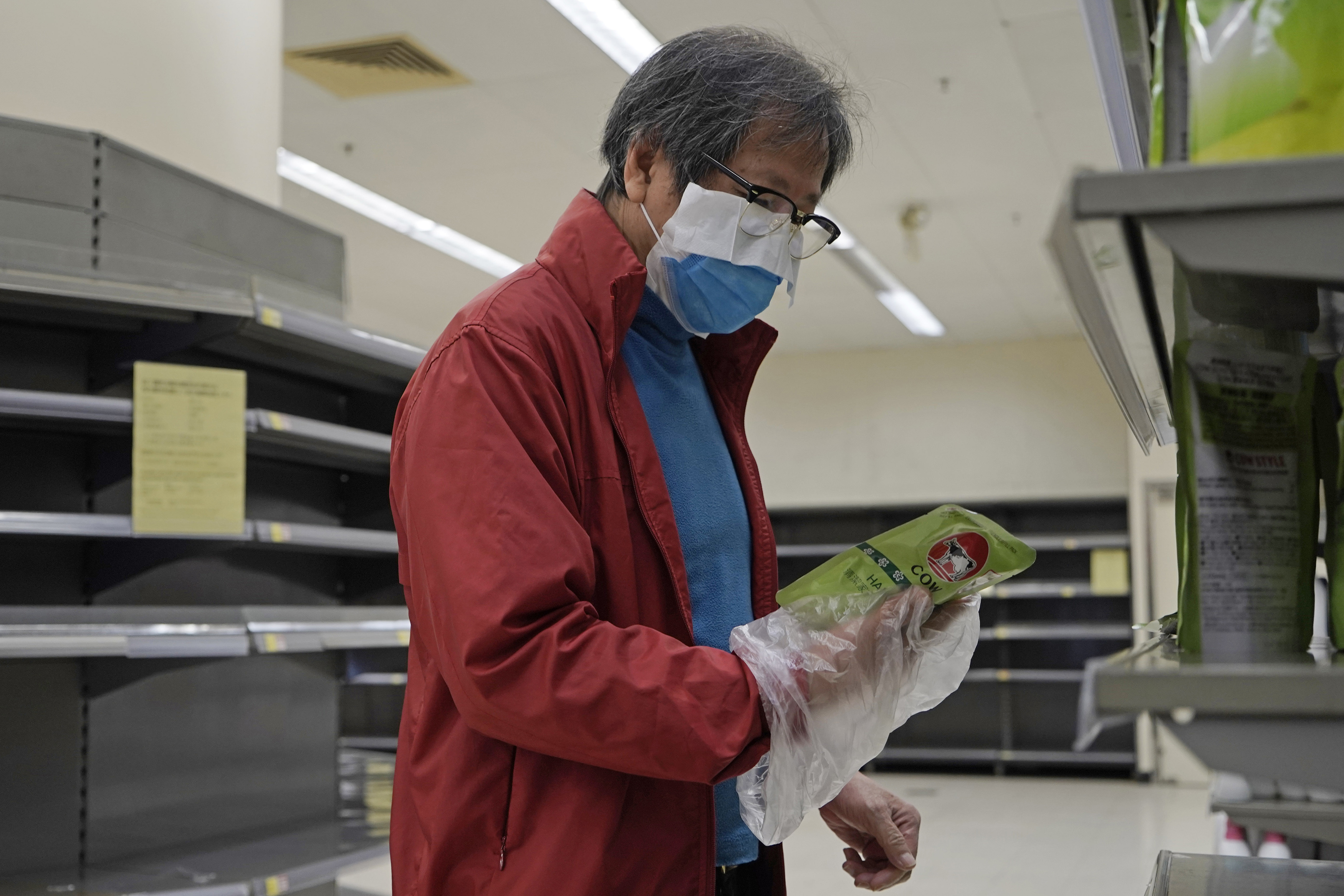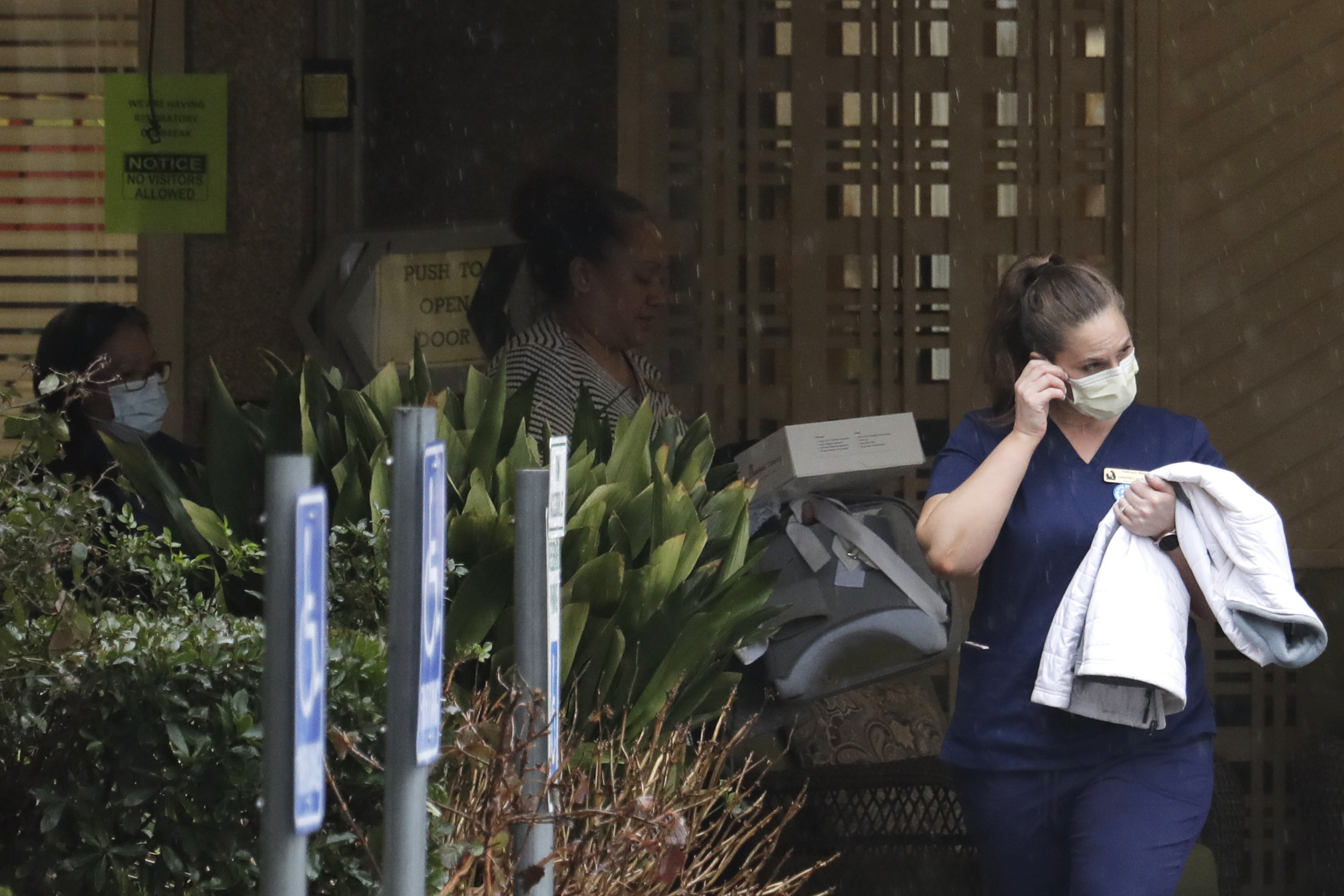The coronavirus spread deep into Iran's government, South Korea ramped up its fight against the epidemic by starting drive-thru testing, and seven major economies tried to shore up global confidence Tuesday with a pledge to use “all appropriate tools" to counter the economic fallout.
Mushrooming outbreaks in the Mideast, Europe and South Korea contrasted with optimism in China, where thousands of recovered patients were going home. Virus clusters in the United States led schools and subways to sanitize, quickened the search for a vaccine and spread fears of vulnerability among nursing home residents.
"We are in unchartered territory," said World Health Organization leader Tedros Adhanom Ghebreyesus.
The U.S. count of COVID-19 cases surpassed 100, spread across at least 11 states. There have been six deaths, all in Washington state.
New York Gov. Andrew Cuomo announced Tuesday health officials had confirmed the state's second case — and the first apparent community spread case. Cuomo warned that "it's inevitable that it'll continue to spread."
On Capitol Hill, aides said negotiations are nearing completion on an emergency bill to fund the development of a vaccine and offer disaster loans to businesses hurt by the crisis.
Surgeon General Jerome Adams, a leading public health official in the U.S., urged calm: “Caution, preparedness, but not panic.”
Iran's supreme leader ordered the military to assist health officials in fighting the virus, which authorities say has killed 77 people — the deadliest outbreak outside China.
Among the dead in Iran are a confidant of Ayatollah Ali Khamenei, Iran’s former ambassador to the Vatican and a recently elected member of parliament. The sick include 23 members of parliament and the head of the country's emergency services, state media reported.
Iran’s judiciary chief, Ebrahim Raisi, said some people are stockpiling medical supplies for profit and urged prosecutors to show no mercy.
“Hoarding sanitizing items is playing with people’s lives, and it is not ignorable,” he said.
France's finance minister ordered an investigation into possible price spikes for sanitizer and masks and warned that binge-shopping for household essentials could trigger shortages.
South Korea saw its largest daily increase in new cases Tuesday, with 851 more infections reported, largely in and around the southeastern city of Daegu. In all, 5,186 in South Korea have tested positive for the virus.
In the capital of Seoul, drive-through virus testing centers began operating, with workers dressed head-to-toe in white protective suits leaning into cars with mouth swabs, a move meant to limit contact with possible carriers of the illness. Troops were also dispatched across the city to spray streets and alleys with disinfectants.
Stock markets shed some of their gains after the Group of Seven countries held off announcing specific new measures to help the global economy cope with the disruptions.
Coronavirus Outbreak Coverage
Many traders had been hoping for a broad package of economic support. Instead, the G-7 finance ministers and central bankers reaffirmed their commitment to use “all appropriate policy tools to achieve strong, sustainable growth and safeguard against downside risks.”
"The fear factor is still very high," said Kirk Hartman, president of Wells Fargo Asset Management.
Worldwide, more than 90,000 people have been sickened and 3,100 have died from the virus. A constantly expanding list of at least 70 countries have been affected, with Ukraine the latest to report a first case.
In China, the count of new virus cases dropped again Tuesday, with just 125 new cases after a six-week low of 202 a day earlier. It's still by far the hardest-hit country, with 80,151 cases and 2,943 deaths. The virus has been detected in at least 70 countries with 90,000 cases and 3,100 deaths.
China's ambassador to the United Nations said the country was winning its battle against COVID-19.
"We are not far from the coming of the victory," said Zhang Jun.
In Italy, the count of infected people climbed to 2,036 with 52 dead, and officials said it could take up to two weeks to know whether measures including quarantines in 11 northern towns are working.
In Japan, questions continued to build about how the virus might affect the Olympics.
The country's Olympic minister, Seiko Hashimoto, said Tuesday the country was "making the utmost effort" to proceed with the games' planned opening on July 24 in Tokyo. But she told parliament the country's contract with the International Olympic Committee only specifies that the games be held during the year 2020, and that they could be delayed to later in the year if necessary.
Sedensky reported from Bangkok. Contributing to this report were Chris Grygiel in Seattle; Kim Tong-Hyung and Hyung-jin Kim in Seoul, South Korea; Nasser Karimi in Tehran, Iran; and Jon Gambrell in Dubai, United Arab Emirates.



